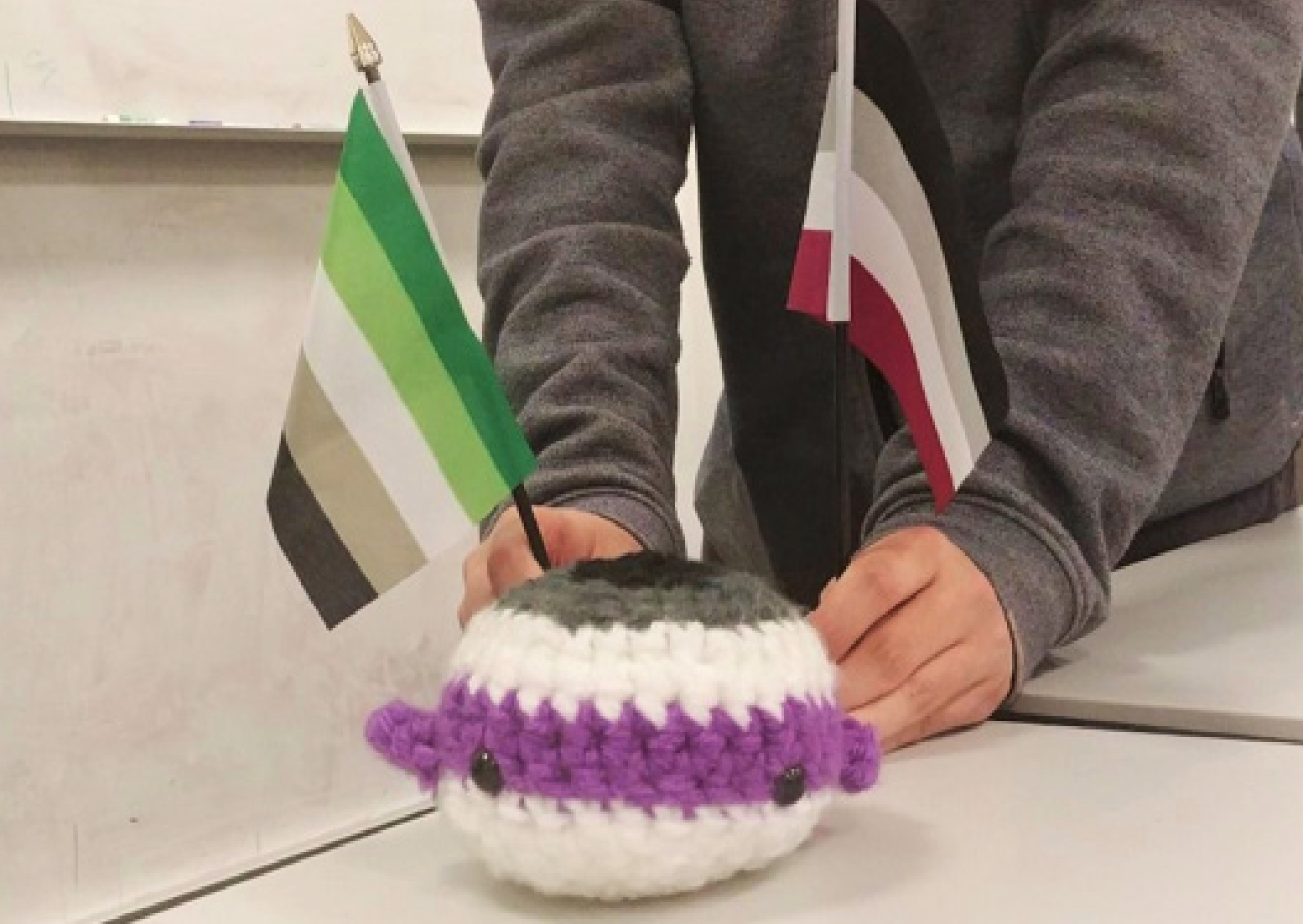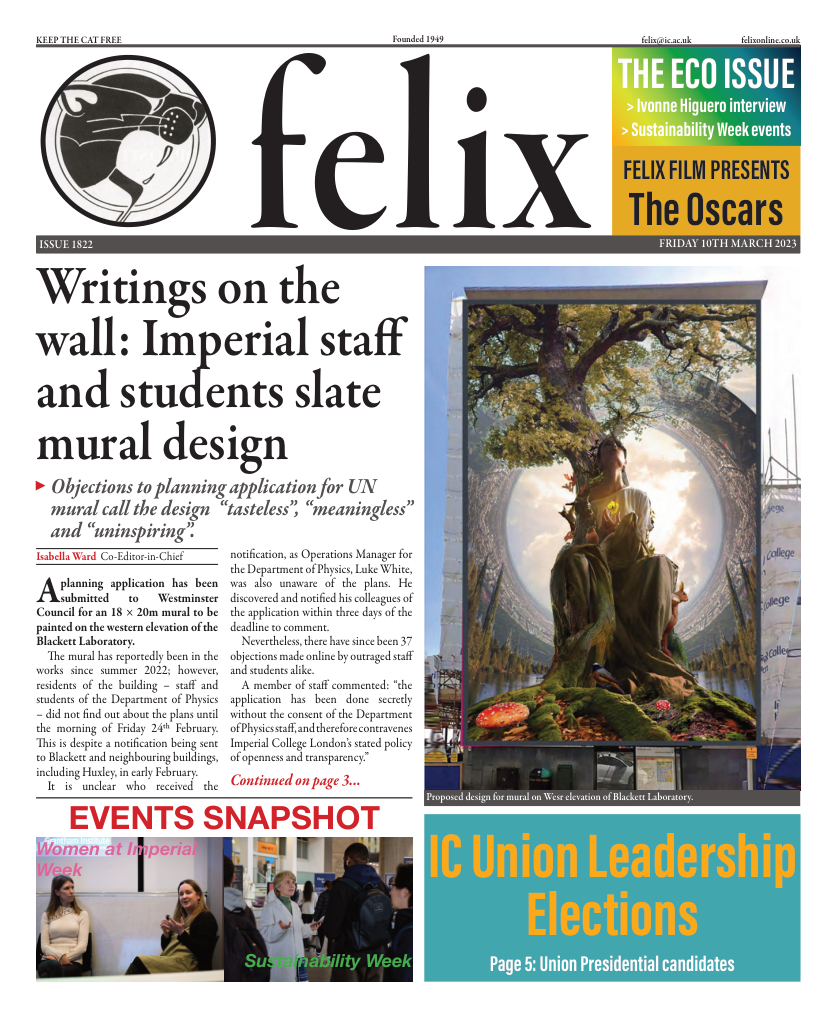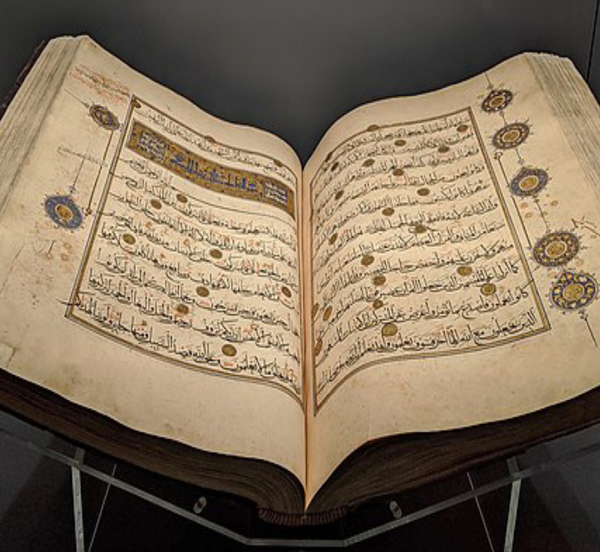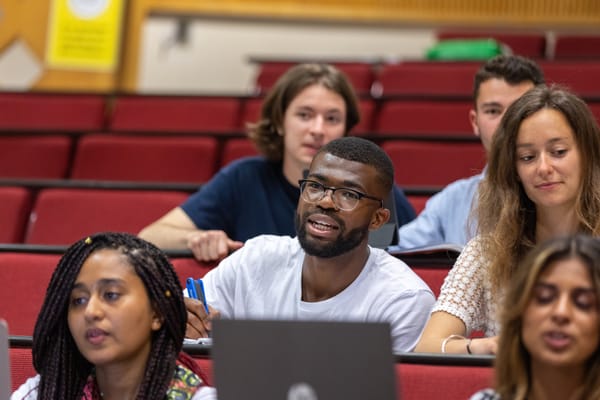Why aspec awareness matters at Imperial
Katherine Holmes discusses the developments in the representation of the aspec community in Imperial and in the broader STEM world

Have you ever heard of the LGBTQ+ orientation ‘aspec’?
Aspec people are queer individuals who identify as asexual (‘ace’) and/or aromantic (‘aro’), which are terms that reflect if an individual’s experience of sexual and/or romantic attraction is notably reduced. This umbrella term encapsulates an endless amount of experiences. Retract the umbrella, and you are showered with various subidentities to help us ground ourselves and communicate what aspec means to each of us personally. Demi-ace/aro, ace/aroflux, pan/bi/homo/hetero-romantic, sex-repulsed, sex/romance-favourable, and on and on. I see sexual and romantic attraction as not just a rainbow spectrum but also having a colour intensity. This may be a lot to absorb if it’s new to you.
Like many LGBTQ+ people, it takes time to figure out our orientation, and even then, the nuances of it may fluctuate. Having the ‘right words’ and a safe space to start a dialogue are critical variables to realising who we are and learning how to appreciate ourselves and others. This sentiment is what carries the recent efforts to include aspec into queer conversations at Imperial and the broader STEM community. That said, at Imperial in particular, it still feels like very early days for active inclusion and recognition.
I am thankful to have been part of these early days, and I wish to see consistent university-wide efforts for aspec inclusion in the coming years. To my knowledge, the ‘Pride of Imperial’ article and ‘Pride of Exhibition Road’ panel, which I took part in during 2022, were two of the first Imperial-associated LGBTQ+ projects that acknowledged the aspec orientation. Later that year, I was filled with pride to see IQ arranging aspec focused events, specifically a panel featuring aro-ace activist Yasmin Benoit and ‘the first successful’ aspec student social hosted by Natalie Ng. Indeed, 2022 was a good year to be an aspec student at Imperial.
Meanwhile, in the external STEM world, we have seen ‘rising star’ activists go above and beyond to raise awareness and create safe spaces for communities to grow. Sarah Cosgriff is an asexual science communicator and has done incredible advocacy since 2020. Along with Dr. Jazmin Scarlett, the pair co-founded the Aces in STEM network, providing a digital space for people to connect with others like themselves.
The struggle to be open is often experienced by aromantic individuals as well as asexuals
Sarah often incorporates queer topics into their work, be it doing science demonstrations that include different pride flags or directly using science as an allegory for what it is like to be queer. She is passionate about engaging LGBTQ+ audiences through her work, including sharing science demonstrations with asexual themes on TikTok. Recently, she shared one of these demonstrations in a science context: a science communication conference. The demonstration she shared with conference attendees involved colour to describe the split-attraction model, a model which is well-spoken across aspec communities to describe different forms of attraction. She not only uses her expertise as a science communicator to engage people with science but also to engage scientists to raise their knowledge of asexuality and aromanticism.
Efforts like this give me hope that someday soon this ‘unheard of ’ identity will become visible and valued. From the 2018 National LGBT Survey conducted by Government Equalities Office, it was shown that asexual people make up the LGBTQ+ group who are least likely to be out. A staggering 89% of those identifying reported that they ‘had avoided being open about their sexual orientation for fear of a negative reaction’. The aromantic spectrum was not accounted for in the survey, however, the struggle to be open is often experienced by aromantic individuals as well as asexuals. When asked ‘why?’, I believe many factors originate from wellupheld social norms. Whether it is our schoolteachers in sex education telling us ‘you will feel like this; you can expect to do that’, or that one friend repeatedly asking, ‘do you have a boyfriend yet’. It all adds up to an expectation that people will not understand or respect that you experience things differently.
This is why awareness is important; only when compassionate inclusion becomes the norm will asexuality and aromanticism become truly understood and appreciated. Imperial has started to play a part in generating visibility for aspec students, and I hope that an intention to do more in the future exists. Consistent mindful efforts will go a long way in validating the aspec minority that they do indeed have a place here in LGBTQ+ groups, Imperial and the external STEM community. I think we are on the right track Imperial. Keep it up!









